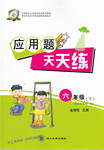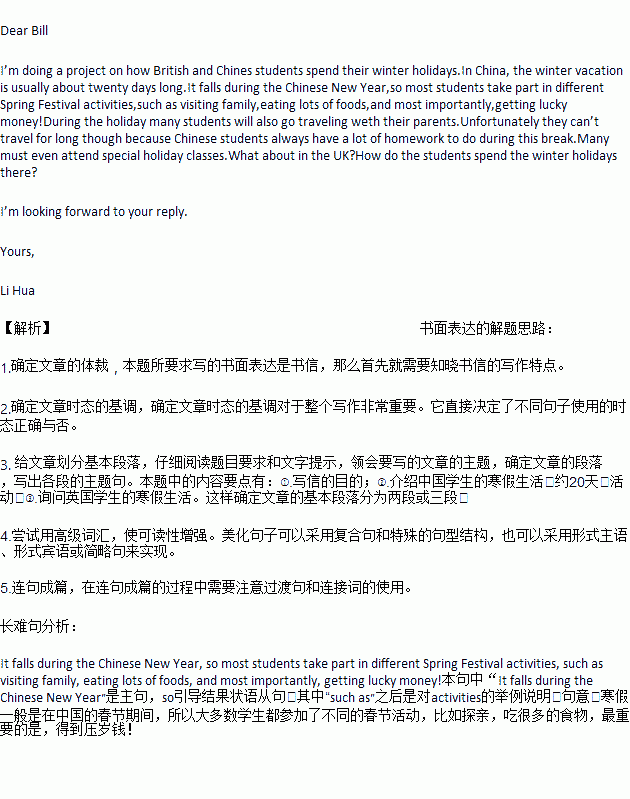题目内容
假定你是李华,你要完成一项关于中英学生寒假生活的调查。请给你的英国笔友Bill写一封信,交流相关信息。要点如下:
1.写信的原因;
2.介绍中国学生的寒假生活;
(1)时长:约20天
(2)活动
3.询问英国学生的寒假生活。
注意:1.词数100左右;
2.可以适当增加细节,以使行文连贯。
3. 信的开头和结尾已给出, 不计入总词数。
Dear Bill,
____________________________________________________________________________________________
____________________________________________________________________________________________
____________________________________________________________________________________________
____________________________________________________________________________________________
____________________________________________________________________________________________
____________________________________________________________________________________________
____________________________________________________________________________________________
_______________________________________________________________
Yours sincerely,
Li Hua
 应用题天天练四川大学出版社系列答案
应用题天天练四川大学出版社系列答案

 also included health foods for the children.
also included health foods for the children.